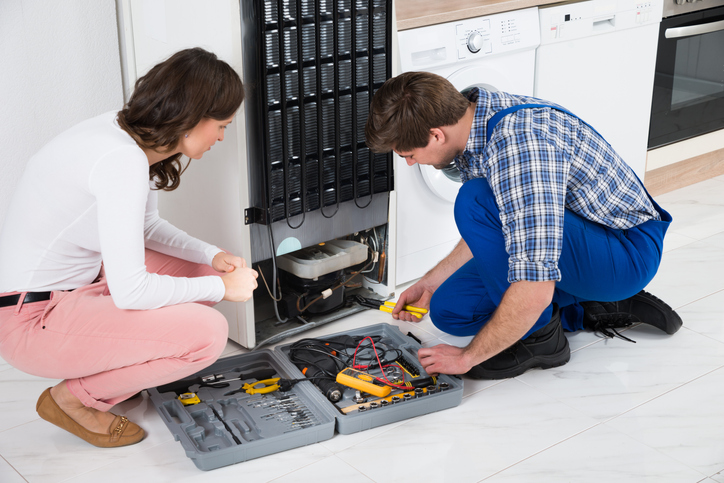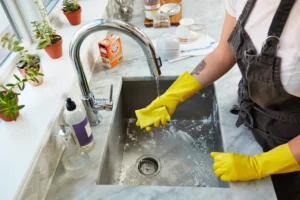A clean and tidy kitchen is not only visually appealing, but is also crucial in maintaining a healthy and safe cooking environment. One of the most important aspects of achieving and maintaining a clean kitchen is the proper maintenance of equipment. In this article, we explore the importance of maintaining your kitchen appliances and give you some basic tips to keep them in top shape.
Why maintenance of home appliances is important
Maintaining your kitchen appliances isn’t just about aesthetics; it has a direct influence on the functionality, lifespan and safety of the equipment. This is why it’s important:
Efficiency: Well-maintained appliances run more efficiently, saving you money on your energy bills. For example, a clean and well-maintained refrigerator cools food more efficiently and therefore uses less energy.
Safety: Defective or neglected equipment can cause safety hazards. Regular maintenance can help identify and resolve potential problems before they become major problems. This is especially important with gas appliances, as leaks can be dangerous.
Lifespan: Devices are investments and proper maintenance can significantly extend their lifespan. This means you need to replace them less often, reducing costs and environmental impact.
Food safety: In a clean kitchen, food is less likely to be contaminated by defective utensils. For example, your refrigerator and oven play a crucial role in storing and preparing food, so they need to be in top condition.
Basic tips for maintaining electrical appliances
Now that we understand the importance of appliance maintenance, let’s dive into some basic tips to help you keep your kitchen appliances in good working order:
Regular cleaning: Start with the basics. Clean your appliances regularly to prevent the build-up of dirt, grease and food residue. This includes wiping down surfaces, removing crumbs from toasters and ovens, and cleaning refrigerator coils.
Check and replace filters: Appliances such as range hoods, dishwashers, and refrigerators often have filters that need to be cleaned or replaced regularly. Follow the manufacturer’s recommendations for your specific model.
Check Seals and Gaskets: Make sure your refrigerator and oven’s seals and gaskets are in good condition. Damaged seals can cause temperature fluctuations and energy waste.
Cleaning your oven: Consider using the self-clean function for your oven, if you have one. For manual cleaning, use a safe and effective oven cleaner. Don’t forget to clean the oven racks and interior.
Maintain your dishwasher: Clean the filter of your dishwasher regularly and check the spray arms for dirt. Also use dish soap to remove mineral deposits and soap residue.
Maintenance gas appliances: If you have gas appliances, such as a stove or oven, have them professionally inspected every year for leaks and good ventilation.
Empty and defrost your refrigerator: Empty and defrost your refrigerator regularly to prevent ice build-up, which can reduce energy efficiency. Remove any expired or frozen burnt items.
Check the wires: Check the electrical wires for damage or fraying. Replace damaged wires immediately to avoid electrical hazards.
Schedule professional maintenance: Consider scheduling annual or semi-annual professional maintenance for major appliances such as refrigerators, dishwashers and ovens. Professionals can identify and solve hidden problems.
Read the user manual: Finally, read the user manual of your device and keep it. They often include specific maintenance guidelines and troubleshooting tips.
In short, proper appliance maintenance is essential for a clean and functional kitchen. By following these tips and being proactive with maintenance, you can ensure that your kitchen appliances not only look great, but also operate efficiently and safely for years to come. A clean kitchen is a happy kitchen, and well-maintained appliances are essential to achieving that goal.



